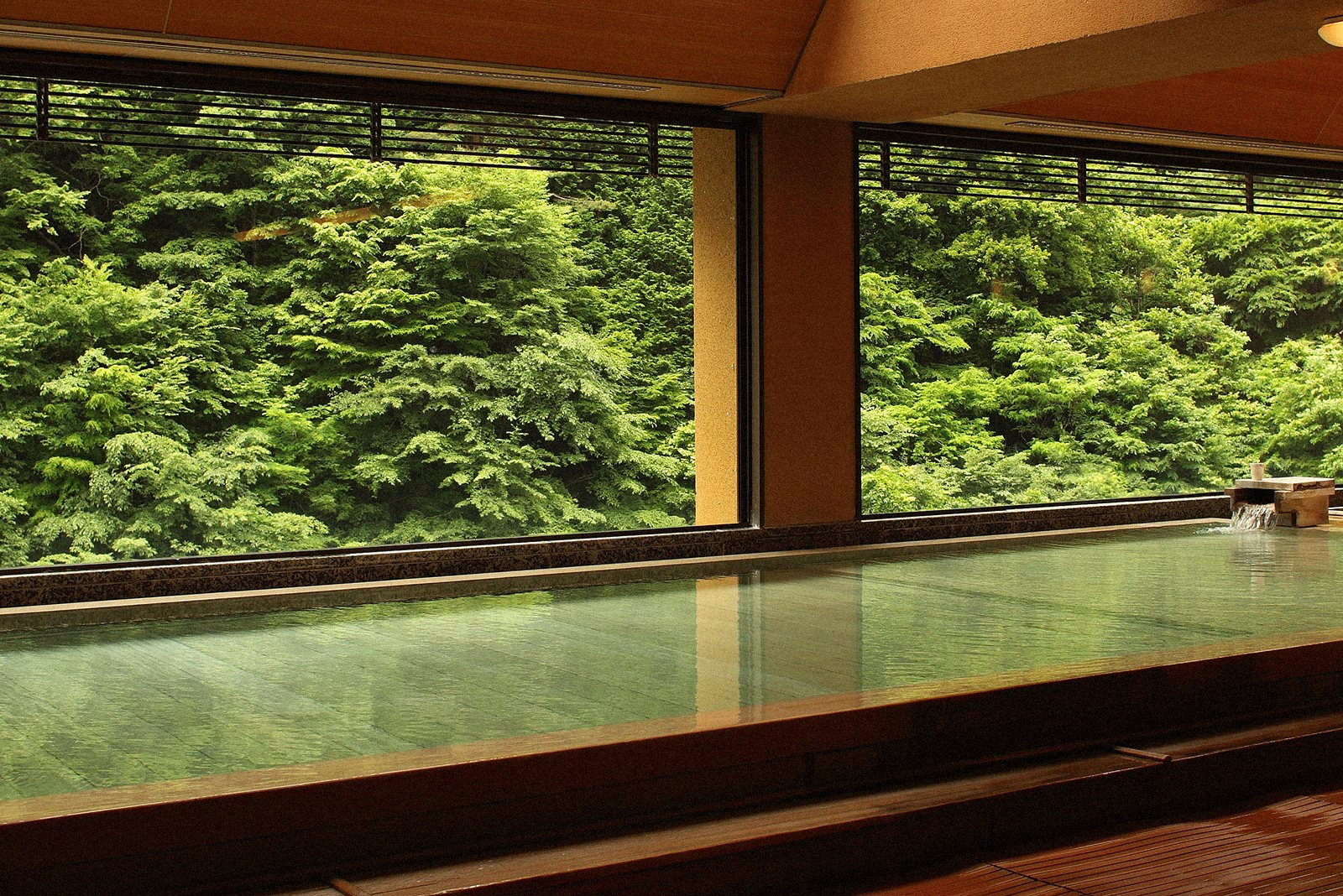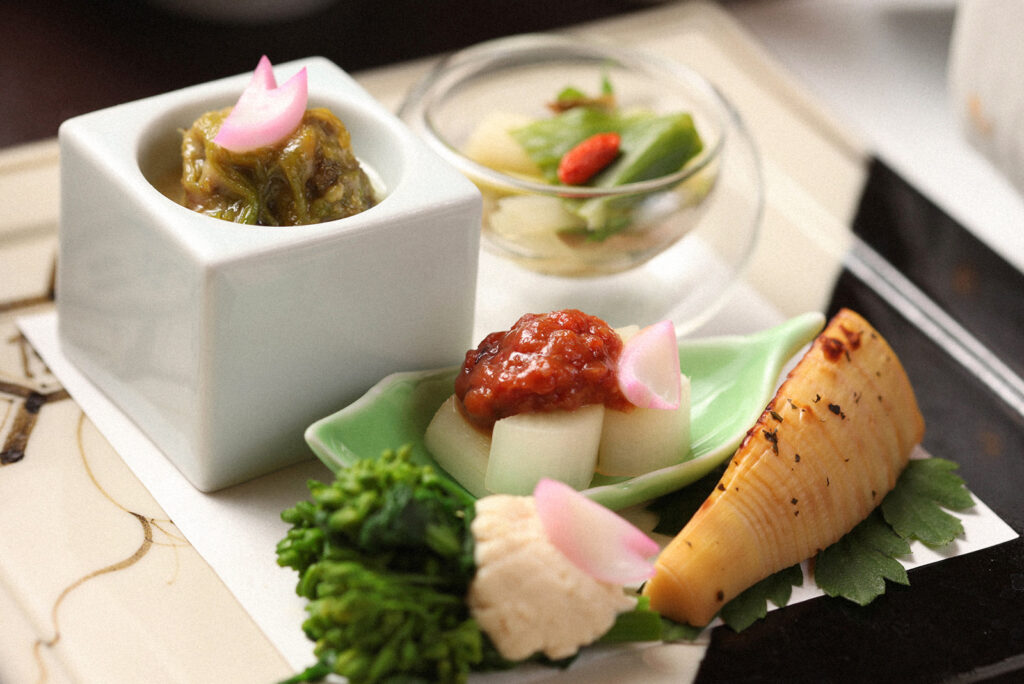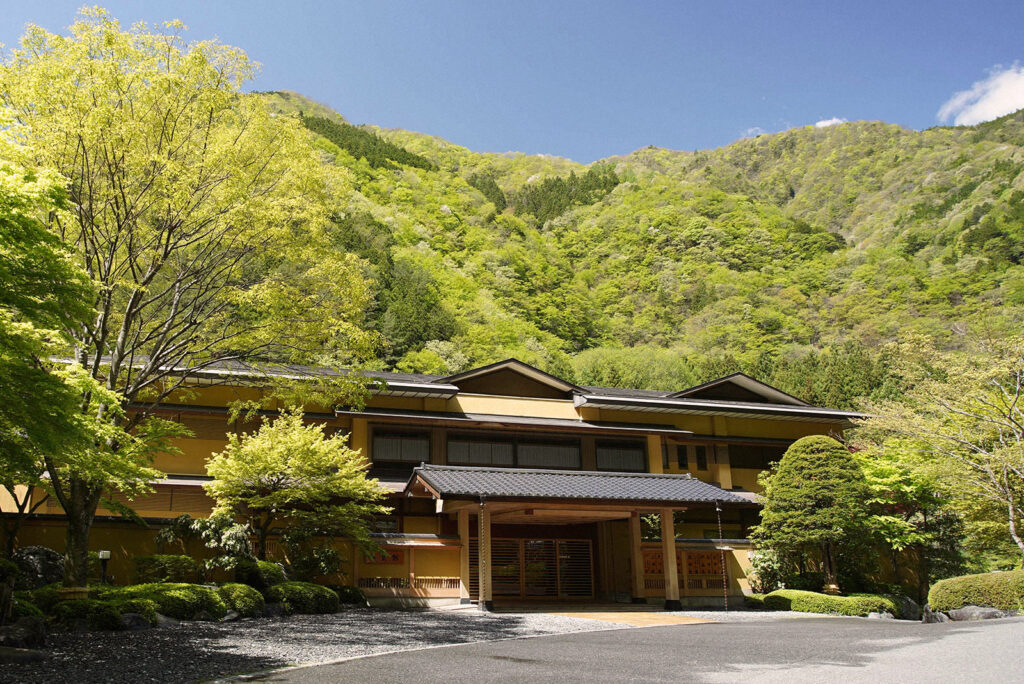
Thirteen Hundred Years of Returning
1,300 Years of Hospitality at Japan’s Oldest Inn
For over 52 generations, one family has run Nishiyama Onsen Keiunkan, a hot spring inn in Japan’s Yamanashi Prefecture. With more than 1,300 years of uninterrupted hospitality, this quietly extraordinary place offers something rarer than historical novelty: a living, breathing testament to cultural continuity. Anchored in care, refined by time, and sustained through trust.
by İzlem Arsiya and Anamaria Roa
The Journey In
Getting there takes effort. The closest train station, Minobu, is nearly an hour away by car. There’s no direct highway, no convenience store in sight. From Tokyo, the journey stretches across transfers, winding roads, and long silences. But that’s the point. You don’t just arrive—you slow down.
By the time you reach the entrance, the pace has already shifted. At check-in, no one asks your name. A woman in soft slippers greets you before you knock; she already knows who you are, and exactly how far you’ve come. A cup of tea finds its way into your hands before your bag touches the floor.
Steam curls over stone. Pines rustle like silk. The scent of hinoki wood drifts upward as you slip into a mineral bath older than most empires. This is Nishiyama Onsen Keiunkan—the world’s oldest hotel, and still, somehow, one of its best-kept secrets.
A Quiet Devotion
Arriving at Keiunkan feels less like checking in and more like stepping into a different register of time. Here, nothing is ornamental for its own sake. There are no chandeliers, no curated wellness menus. Instead, tatami floors, washi-paper screens, open-air baths fed by volcanic springwater, and dinners that unfold like edible poems.

The experience is built on quiet devotion. An invitation to breathe. To notice the weight of a ceramic bowl, the exact green of the moss outside your window, the way sound softens in a room made of earth and paper.
In Japan, hospitality is lived. Water is drawn before you ask. Slippers are turned to meet your step. A cup of tea warms your hand before your bag touches the floor. There is a word for this kind of presence: omotenashi, a quiet attentiveness that never calls attention to itself.
At Keiunkan, that philosophy runs deep. It’s there in the way you are received, the way meals arrive without ceremony, the way care is offered without needing to be seen. Service here is not scripted; it is instinctual.
And in Japan, a family business is more than inheritance—it is stewardship. What is passed down is not only a name or a building, but a responsibility. One that extends, always, to the guest.
Materials of Time
Hinoki wood, volcanic stone, and rice straw form the ryokan’s bones—materials chosen not for ornament, but for their natural resilience and the way they age. Hinoki cypress, prized for its subtle aroma and resistance to moisture, lines corridors and bathhouses. Volcanic stone shapes foundations and basins, grounding the building in the earth itself. The inn sits along the Hayakawa River and within its forested valley, integrating with the landscape rather than imposing on it.
The springs still flow from their original source, Hakiho, rushing up at 52°C, pure and untreated. Water is guided into tubs of cypress and smooth stone, rising in steady steam. There are no spa soundtracks, no perfumed oils—only warmth, silence, and the breath of the mountain.
The rhythm carries into daily life. Kaiseki dinners arrive in-room, one course at a time, reflecting the pace of the surrounding seasons. Rooms open to views of valley, river, or bathhouse, framed by washi screens and softened light. Staff, some of whom have served here for decades, move in nibu-shiki kimono with a quiet precision that conveys care without spectacle.
At Keiunkan, the onsen remains the heart. Four natural springs on the grounds make the inn entirely self-sufficient, its water flowing continuously as it has for centuries. To bathe here is to return to something steady. In Japan, onsen culture is not indulgence but renewal—rooted in the belief that wellness comes through repetition. People return to the same baths year after year, not for what changes, but for what endures.

Generations Later
Keiunkan has carried that responsibility across thirteen centuries. Founded in 705 AD by Fujiwara Mahito, a government official in the Imperial Court, it has been welcoming guests since the Nara period. For 52 generations, it remained in the same family. In 2017, that legacy shifted when the baton was passed to a longtime employee, hand-selected by the previous owner. The transition wasn’t ceremonial. It was a continuation of care. In Japan, inheritance doesn’t always follow bloodlines. It follows trust.
Keiunkan endures not by resisting change, but by honoring continuity as a form of active care. Its structure, its rituals, its philosophy, and its identity are maintained through precise craftsmanship and intergenerational stewardship.
Some places live long by holding on.
This one endures by paying attention.
And in doing so, it remains exactly what it has always been:
A place to return to.


